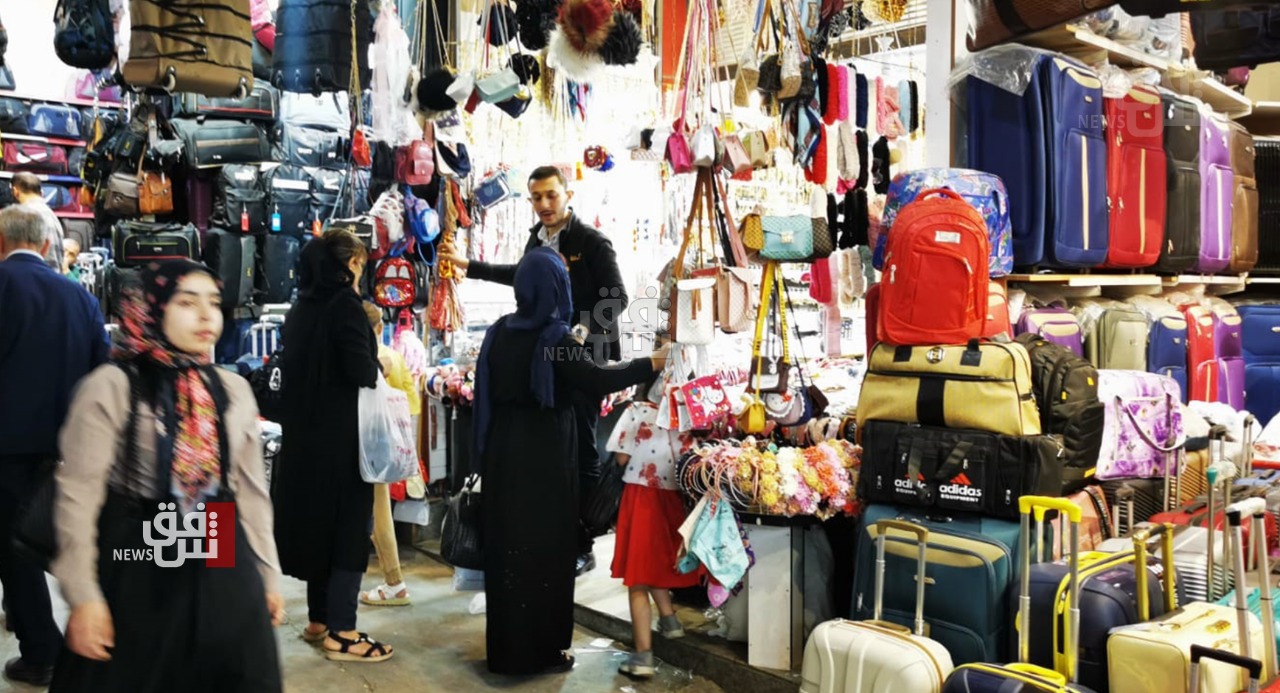The late chill strikes "warm" clothing markets in Iraq

Shafaq News / Winter clothing markets in Iraq are experiencing a slowdown across all categories, prompting shop owners to announce price reductions to counter the decline in purchases. They attribute the sluggish demand to the warm weather, particularly prevalent in the central and southern regions of the country.
Clothing stores specializing in winter wear in various Iraqi governorates had prepared for the winter season by importing a significant quantity of thick clothing items, including jackets for both women and men, as well as various styles of sweaters. However, the overall scene does not indicate a significant turnout of citizens, given the current warm weather conditions.
Unusually warm winter
Amer Al-Jabiri, the media director of the Iraqi Meteorological Authority, noted that the country is experiencing a lack of temperature drops and rainfall this season due to the weakness of atmospheric pressure systems, particularly in the central and southern regions.
Al-Jabiri explained that the amount of rainfall has been meager so far, with temperatures recorded at 16 and 17 degrees Celsius in central and southern areas, and 12 and 11 degrees Celsius in the northern regions. He expressed hope that atmospheric pressure systems will become more active in the coming days.
Sales recession
The absence of a temperature drop has resulted in winter store owners incurring financial losses due to stagnant merchandise within their establishments. These stores, which traditionally experience bustling buying and selling activities throughout the winter season, are now grappling with a decline in customer traffic.
In this context, Mohammad, a clothing store owner in Babil, remarks, "Customer interest in heavy clothing, both outerwear and even domestic apparel, is weak due to the unseasonably mild winter. This has led to a reluctance to make purchases, contrary to the robust sales seen at this time in previous years."
Mohammad further told Shafaq News Agency that "the winter season seems bleak from the outset, and the current economic slowdown has forced price reductions, primarily to move merchandise."
Ali, another store owner from Karbala, echoed similar sentiments, stating, "Citizens' interest in purchasing clothes has become exceedingly weak," emphasizing that "the lack of cold weather has significantly impacted purchasing behavior."
Continuing his conversation with Shafaq News Agency, Ali added, "This year's winter clothing season is virtually nonexistent, resulting in a slump in sales, coupled with rising import costs, taxes, bills, and rental prices for stores."
Economic pressures
Several citizens, particularly those in the lower and middle-income brackets with limited financial resources, prefer to make do with their existing winter clothing in recent years due to general economic pressures. This trend is exacerbated by the high cost of living and a decline in overall living standards, especially for families with school-going children.
In this regard, Um Haider from Karbala has been compelled to refrain from purchasing new clothes for her children at the beginning of this winter season, citing economic pressures. She stated, "I had no choice but to limit new purchases for my children due to the soaring prices of clothing and the absence of cold weather so far."
Delayed winter
The stagnant market conditions appear poised for a shift in the coming days with the arrival of the first cold wave at the end of the current week, according to weather experts.
In this context, meteorologist Ahmed Al-Tamimi attributed the delayed winter to "fluctuations in the atmospheric system in Iraq, the Arab region, and Europe, influenced by various factors, including the ozone layer."
Al-Tamimi told Shafaq News Agency, "As for the remaining period of winter, the forecasts indicate that winter will arrive at the end of this month and continue for several days."
On the other hand, meteorologist Mohammed Ali attributed the warm weather to "the high-pressure system in the Arabian Gulf pushing the cold Siberian high to Turkey and northern Iraq, resulting in hot weather in the southern regions and cold weather in the northern areas."
Ali anticipated that "the high-pressure system will retreat by the end of this week, ushering in the country's first cold wave, with chances of rain on Monday and Tuesday in the north, Thursday in the central regions and parts of the south, and cold weather at the end of the current week."





